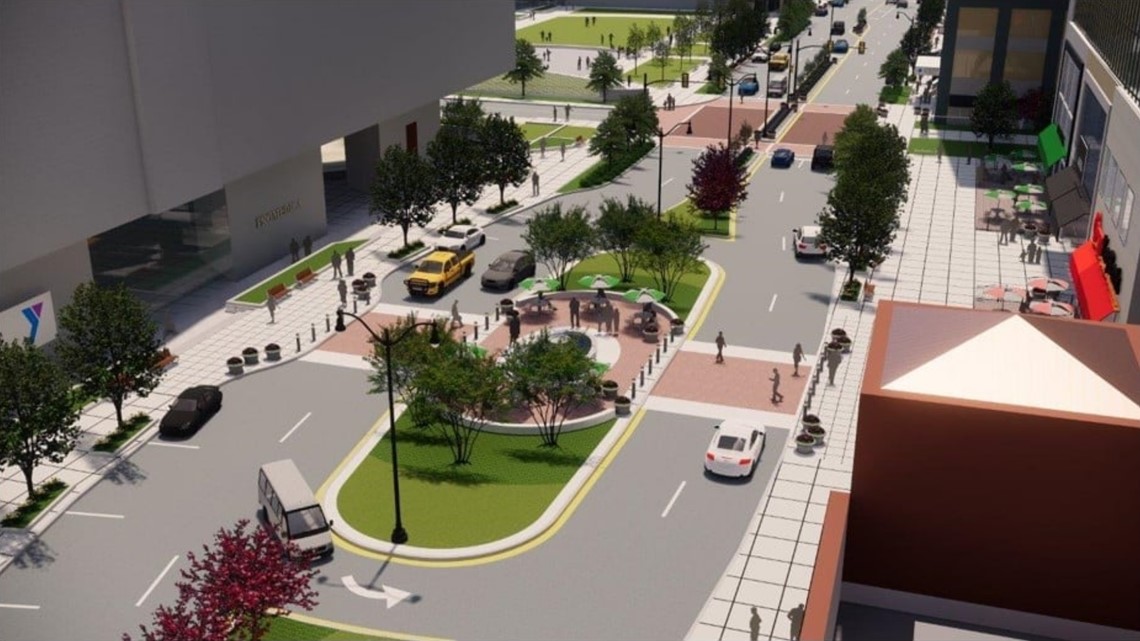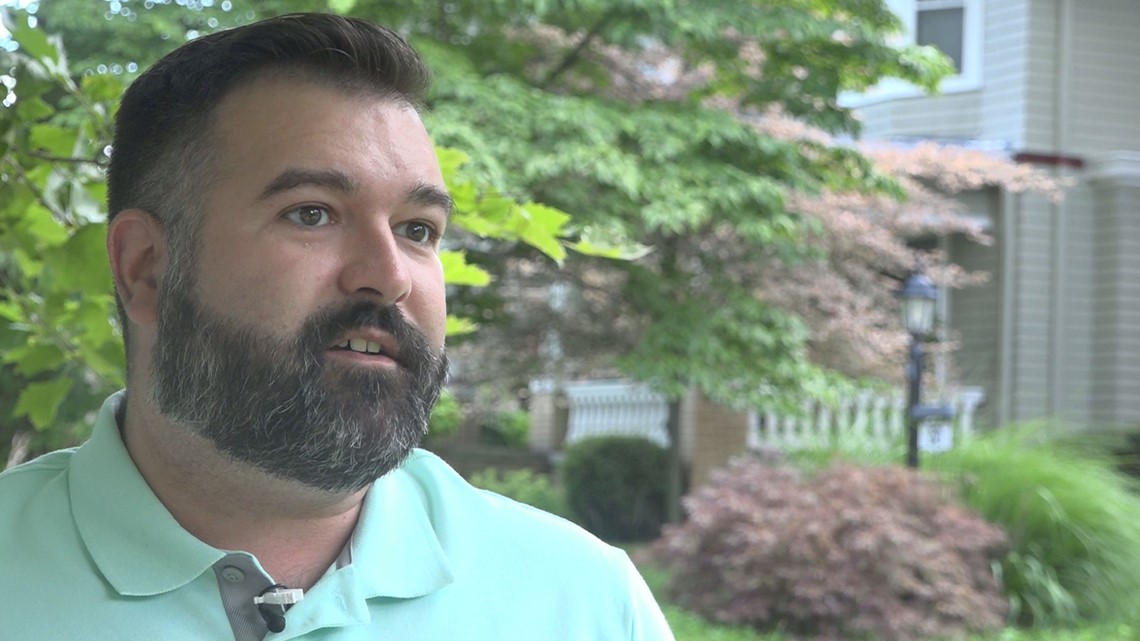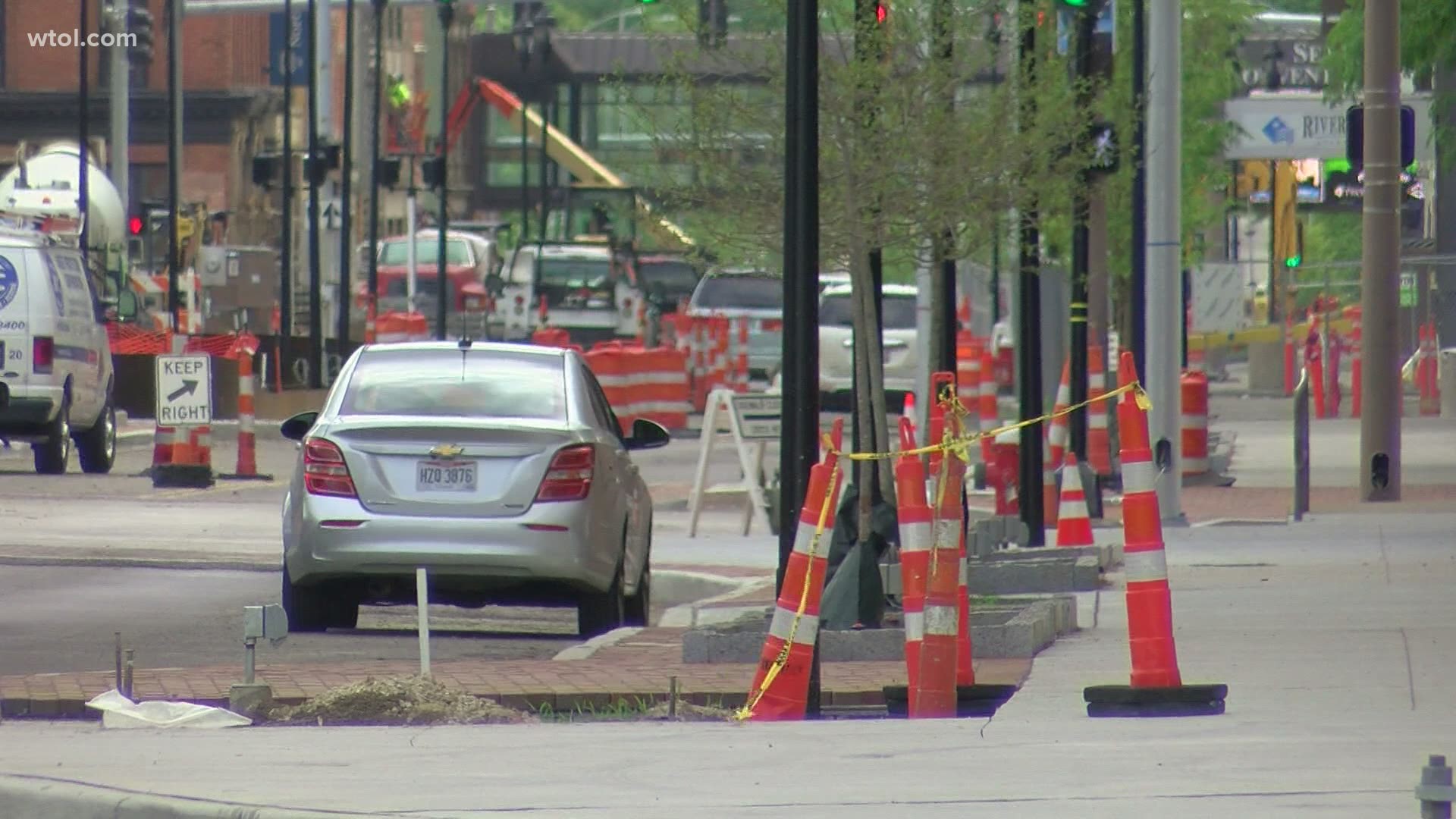TOLEDO, Ohio — Toledo Councilman Rob Ludeman confirmed Wednesday afternoon that he and Councilman Nick Komives are preparing legislation to "challenge the administration to recoup funds" paid to Block Communications as part of a Summit Street beautification project. The project is drawing scrutiny from the FBI.
"We're not trying to point the finger and indict anyone. We just want our money back," Ludeman said. "We didn't get the proper information when we voted on it."
The project was approved in May 2020, and Block Communications, the owner of Buckeye Broadband, was paid $973,000 to relocate its equipment. AT&T, Toledo Edison, Columbia Gas, Verizon, and the Zayo Group were also impacted and records show that those costs were close to $600,000.
Ludeman says that legislation was never introduced to reimburse the other utilities for moving their equipment.
"In my opinion, that would have raised major red flags and possibly put off the vote at that time," he said.
Now, he's concerned about what happens now that those utilities know that Block Communications was paid.
Ludeman believes those utilities paid for the work, and he is concerned by what happens now that they know Buckeye Broadband was paid by the city.
"What I fear is that those other utilities will now want theirs," he said.
'The city - not Buckeye Broadband - was responsible for the cost'
Keith Wilkowski, vice president of legal and governmental affairs for Block Communications, provided the following statement when he was asked if Block Communications would fight any attempt to recoup the money:
"In May 2020 the city administration acknowledged that the city – not Buckeye Broadband – was responsible for the cost of relocating Buckeye’s fiber optic communications lines on Summit Street. This streetscape beautification project was being undertaken to improve the appearance of Summit Street in the vicinity of ProMedica's new headquarters and in advance of the 2021 Solheim Cup golf tournament.
"Longstanding Ohio law and precedent support the conclusion that the city is the financially responsible party in this situation, notwithstanding any provisions of the Toledo Municipal Code. As recently as three weeks ago, the city administration again publicly reaffirmed that it had acted properly in covering these costs.
"But now it appears that after experiencing some political pressure, the administration is backpedaling. If the city decides to spend substantial legal fees in an effort to change the law of Ohio, Buckeye stands ready to vigorously defend its legal position."
The city turned over numerous public records to WTOL 11 on Wednesday afternoon that we are in the process of reviewing.
Ludeman hopes that his legislation can be prepared by the end of the week.
FBI investigation
The decision by the city to pick up nearly $1 million in costs to move the utilities also has the FBI involved.
On May 21, Toledo city leaders acknowledged the investigation, stating that while the decision may be "unpopular among some people, it does not mean it was unlawful or inappropriate."
In a press release, representatives of the city said that the decision was weighed heavily and guided by "legal interpretations of state and municipal law."
Below is the city's official statement:
"The City of Toledo is aware that authorities have asked for information regarding the Summit St. beautification project. The city is happily providing this information.
Difficult public policy decisions are made every day in city offices, but the fact that this decision may be unpopular among some people does not mean it was unlawful or inappropriate. In fact, this decision was made based on multiple considerations – and it was guided by legal interpretations of state and municipal law.
City officials made a public policy decision to beautify an important section of downtown to help Toledo prepare for its largest international event in decades. The City of Toledo moved forward only after receiving legal guidance and direction. The City of Toledo will have no further comment on the matter until it is resolved."
BACKGROUND
Ludeman said he spoke with an FBI agent about the project, specifically about taxpayers funding utility relocations. Ludeman also says he asked the city for answers regarding paying for utilities to move lines or equipment, but never received any.
Toledo Municipal Code 945.10 says every owner of facilities in the right of way shall remove or relocate facilities at their own expense when the city determines it's necessary for the following reasons:
- The need to construct, repair, maintain, improve or use the right of way or public property
- The need to locate, construct, replace, maintain, improve or use any other city property
- The efficient performance of city operations
That section also makes an exception, saying no permit holder shall, without reasonable compensation, be required by the city to relocate, change, support, hold or alter the position of any facility for a non-transportation-related aesthetic improvement.
According to public utilities documents obtained June 9, there was about $972,000 paid from the Capital Improvement Program fund budget for the relocation of Buckeye lines. About $587,000 was noted as the cost for other utility relocation, but it's not mentioned whether those were paid to those entities. Legislation was then drawn up seeking $600,000 for cost of "relocation of utilities." It's unclear at this time what the outcome of that legislation was.
Emails from Buckeye Broadband termed the Summit Street Reconstruction Project as "an upcoming City of Toledo government mandate project" as far back as Oct. 1, 2019.
The question of whether the relocation of utility lines for the Summit Street project was required because a mandatory move or one of beautifying the area was discussed by city officials in various departments before City Law Director Dale Emch came down on the side of it being a beautification project - meaning according to city code utility companies would not be responsible for costs of relocating their lines.
Councilmen Nick Komives and Rob Ludeman dispute the assessment that it's the city's responsibility to pay for the move and plan to write legislation asking that any utility that didn't pay to move its own lines to repay the city.
On Sept. 3, 2020, Deputy Public Utilities Director Doug Stephens said in an email regarding the funding legislation for the Summit Street project that items in green on an attached document "should be crafted by someone other than DPU (Department of Public Utilities)."
He further said he's "happy to support in the presentation but I really think this should be presented by Dale (Emch, law director)/Law. I will certainly punt almost any questions about this that are not technical in nature to him anyway."
The "items in green" sought council's authorization for "$600,000 from the Capital Improvement Program Fund for the Summit Street Project; to enter into contracts for the relocation of utilities to allow for successful completion of the Summit Street Reconstruction Project being administered by the Division of Engineering Services..."
"Engineering Services is requesting $600,000 from the Capital Improvement Program Fund for utility relocation necessary for successful completion of the Summit Street Reconstruction Project. This item is for projects that utilize 100% City of Toledo capital funds to rebuild or resurface primarily local residential streets."
Other parts highlighted in green - for which Stephens was deferring to the city law department to write - include parts of Section 1 and Section 2:
SECTION 1. That the mayor is authorized to execute necessary contracts or agreements with private utility companies located within the construction area of the Summit Street Reconstruction Project to pay for the cost of mandatory relocations in the public right of way to accommodate the new public infrastructure. Said contracts or agreements shall contain such terms and conditions as the mayor may deem requisite and proper and shall be subject to approval by the Director of Public Utilities and the Director of Law.
SECTION 2. That an amount not to exceed $600,000 is authorized for appropriation from the Capital Improvement Program Fund, Account Code 5040-35000-8CB2033SUMMST and further authorizing the expenditure of same for privately owned utility relocations withing [sic] the construction area of the Summit Street Reconstruction Project.


He further said in an email to Carol Wagner, CC'd to Susan Russeau and Christy Soncrant, that "honestly, I don't think DPU should present this legislation so hopefully they will and we will be support."
A spreadsheet was included with that Sept. 3 email that was noted to be "for our information only. Do not forward it beyond this email."
That spreadsheet showed there was about $972,000 paid from the CIP budget for the relocation of fiber optic lines, according to the public utilities department. A line item for Buckeye Broadband Facilities Relocation totaled $617,687.69.
About $587,000 was noted as the cost for other utility relocation, but it's not mentioned whether those were paid to those entities. Columbia Gas relocation cost was $275,000; AT&T was $87,000; Zayo was $200,000; and Charter was $25,000. Legislation was then drawn up seeking $600,000 for cost of "relocation of utilities."
In emails obtained by WTOL 11, city Auditor Jake Jaksetic also asked about the city's decision and brought it up with Law Director Dale Emch.
In July 2020, Emch provided him with an answer:
"I made the legal decision pursuant to Toledo Municipal Code 945.10(b)(4) that the city should bear the utility relocation cost for this aesthetic improvement to Summit Street," Emch said in the email. "A basic tenant of legal interpretation is to give words their plain meaning. The dictionary defines 'aesthetic' as 'relating to or dealing with aesthetics or the beautiful.'
"Given that Summit Street was resurfaced approximately two years ago, the project would not have occurred absent a desire to make the area more attractive. That the city is taking advantage of the opportunity to complete additional work under the road does not change the primary reason for pursuing the project."
The $10.55 million Summit Street project has been described by city officials as both a necessary infrastructure improvement and an aesthetic upgrade ahead of Toledo hosting the 2021 Solheim Cup. At its inception in 2019, the plan was pegged to cost $7.5 million.
The city did issue a statement regarding the Summit Street project on May 20:
“We are really proud of the work going on at Summit Street, which will transform that part of downtown and get us ready for an international sporting event coming to Toledo this year, and if there are any questions, we will of course answer those fully with the appropriate authorities."
On May 20, Komives told WTOL 11 the city paid $972,000 to have the work done. That figure was later confirmed by city documents provided to WTOL 11.
Ludeman said he asked the administration how much it would cost the city to move the utilities, what the cost would be to others and if any 2 percent utility funds would be utilized.
"I never got an answer to this referral," Ludeman said.


Komives declined to discuss the FBI's involvement but did say he disagrees with the decision to pick up Buckeye's tab.
"I believe it’s their responsibility to pay us, and I think they should pay us," Komives said. "And the way to make that happen would be to have the law director of this city enforce the laws and fight for our tax dollars."
Columbia Gas and Toledo Edison companies also had lines removed and replaced during the project but according to Komives those companies paid to have their lines removed. We do not know yet if they were offered to be reimbursed for the expense yet by the city.
We have reached out to Toledo Edison and Columbia Gas for comment. We also asked if the city offered to cover their expenses for the project.
On May 21, Columbia Gas responded with a statement, saying, "the Summit Street Project is a City Project. We have no comment at this time."
In 2019, the Toledo Regional Chamber of Commerce released sketches of a "signature roadway in the central business district" that was to include a brand new road and an improved pedestrian experience with "new sidewalks, street trees, furniture, landscaping, and more."

